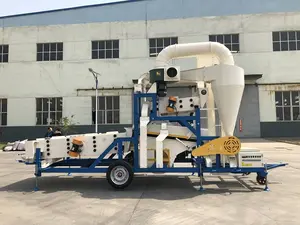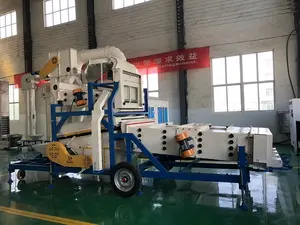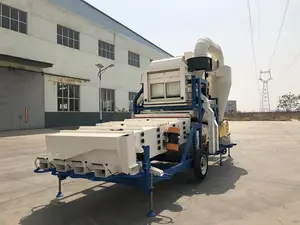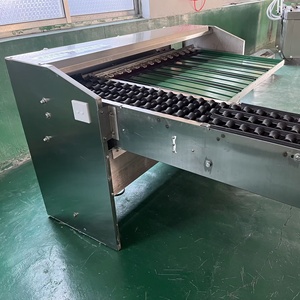(124264 products available)














































































































































































































































Sorting machines are used to sort products or items based on predefined criteria. They automate the process of organizing items, making it more efficient and accurate. Machine sorting processes are widely used in various industries to streamline operations and ensure consistent quality. With advanced technologies, sorting machines are equipped with sensors, cameras, and algorithms that enable them to identify and categorize items at high speeds. For example, a rice sorting machine can quickly and precisely separate rice grains based on size, shape, and color. They have become indispensable tools for businesses looking to optimize their processes and enhance productivity.
Sorting machines operate on the fundamental principle of automated identification and segregation. These machines utilize technologies such as sensors, cameras, and software algorithms to analyze the characteristics of the items being sorted. The sensors capture data, which is then processed by the system to make decisions regarding the categorization of the items. Whether it is sorting by size, shape, weight, or color, the key is to establish clear criteria for differentiation. For instance, in the case of a color sorter, it uses color recognition technology to examine and sort items based on their color characteristics. This automated and precise identification process enables sorting machines to handle large volumes of items quickly and accurately.
There are various types of sorting machines, each designed to meet specific sorting requirements. One common type is the grading machine, which sorts items based on their quality or grade. Sorting machines can be further categorized based on the criteria they use for sorting. Size sorters, as the name suggests, categorize items based on their dimensions. This type of sorting machine is commonly used in industries where size uniformity is crucial, such as the food and agricultural sector. Color sorters, such as those used in the textile and food industries, separate items based on their color or optical properties. Weight sorters, on the other hand, are employed in applications where the weight of items is a critical factor. These sorting machines are vital in industries such as logistics and recycling.
Sorting machines offer numerous advantages across various industries, making them indispensable tools for optimizing processes and enhancing efficiency. One of the key benefits is the significant improvement in speed and accuracy compared to manual sorting. Machine sorting processes can handle large volumes of items rapidly, reducing processing times and increasing overall productivity. Additionally, the consistent and precise categorization provided by sorting machines ensures uniformity in the output, leading to enhanced product quality. The automation of sorting tasks also contributes to minimizing errors and reducing the dependence on manual labor, thereby streamlining operations and cutting down on labor costs. Beyond these advantages, sorting machines contribute to a more sustainable and environmentally friendly approach by enabling the efficient sorting and recycling of materials.